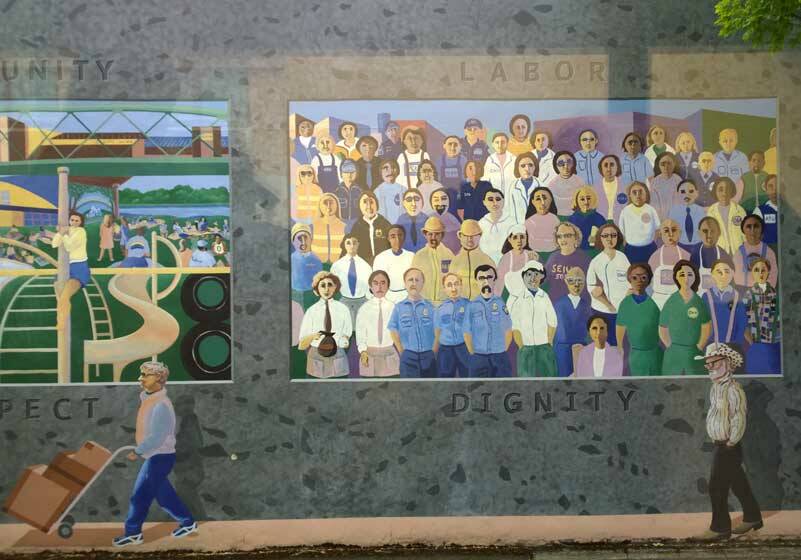By Morf Morford, Tacoma Daily Index
There is less difference than many suppose between the ideal Socialist system, in which the big businesses are run by the State, and the present Capitalist system, in which the State is run by the big businesses. -Gilbert K. Chesterton
There is an old saying that money talks. I’d argue that is only partially true.
Yes, money talks. In fact money never stops talking. Money chatters endlessly and uncontrollably. And money doesn’t listen. Money presumes that it is the only thing that matters – today, tomorrow and every yesterday.
And money, like every humanly created object or service is a great servant – or a terrible master.
From sports to politics to work or even family or faith, every human idea, development or invention seems to be defined far beyond its ostensible use or purpose – it would be easy to make the argument that every human invention had its own not-immediately-visible agenda or purpose – to control, consume and define us. Even, some science fiction writers might propose, to eliminate us entirely.
The irony is that after several decades of a flourishing “self-help” industry, too many of us, young people in particular, I have noticed, seem paralyzingly helpless in facing challenges previous generations, even entire cultures, faced with courage, or at least determined tenacity.
It wasn’t always a will to prevail, but it was, at minimum, a determination to survive. From what I see, with near endless reading, research and up-close analysis of people across the age/income/education and identity spectrum, we, 21st Century Americans seem to not have the skills, will, or even compelling interest in, survival.
A nation that has nothing but its amusements will not be amused for long. -Gilbert K. Chesterton
We love our distractions. In fact many I know literally define themselves by their entertainments – which they “watch” or “follow”, but almost never actually participate in. We have become a culture of observers, of watchers and fans, spectators and passengers, while we watch others “perform” on a screen or field.
Q: What is considered negative if you are poor, but positive if you are wealthy? A: Getting money from the government
To put it mildly, the poor and wealthy inhabit completely different, barely intersecting, worlds.
In Wendell Berry’s book “The Hidden Wound” the corrosive values of slavery, very much still with us, are explored. And it is not the usual suspects.
Beyond race, brutal conditions and implied, if not outright violence, slavery gave us a strong cultural message that simmers under and across our culture. The lesson is simple; the wealthy among us live a life of leisure; work or study or even accomplishment is the domain of those who are poor. If anyone wanted to develop a corrosive philosophy that would undermine and sabotage the strongest culture, that would be it.
Berry, a native Southerner, argues that this is the philosophy that has crippled the southern states – the wealthy and powerful hold their wealth and power for no particular reason other than that they were born into it; work, discipline and the development of skills is for losers. Being “idle rich” is a cultural ideal.
To put it mildly, this is not the avenue to exploration and innovation. Or progress. Or opportunity.
Somehow this belief system has saturated our larger culture – the wealthy and famous among us travel, play golf, and attend events. And get paid well. The poor tend our lawns, pick our produce and do all the labor the rest of us would rather not do.
Ivy League colleges (with vague degrees and gentlemanly Cs) are for the wealthy (where they associate with other wealthy and privileged students) while vocational schools, where students acquire practical skills, are for the others.
Wendell Berry has a section in his book on hands. The hands of adult men in particular. His point was that what he called “hard” hands showed labor, skill and, to a large degree, inherent integrity. Soft hands, to him, were a sure sign of avoidance of work (and often, responsibility).
We have become a culture that idealizes indolence, “watching” sports or entertainers (instead of playing or entertaining ourselves). We buy our food, having essentially no idea where it came from or who handled it before it got to us. We celebrate and reward those who distract us.
Who you gonna call?
We pay others to do work we could easily do ourselves. Our larger cultural message is that labor is “below” us. From cooking to lawn maintenance, even childcare, we’d rather pay other people to do it.
Have you tried to find a skilled plumber or electrician recently?
Our economy is flush with “representatives” and “project managers”, but who are you going to call about a leaky faucet or a pest infestation?
We used to be a nation internationally recognized for our innovation and opportunity, and our determination to “get R done”.
To put it mildly, we need skills, and we need skilled workers. And we need an economy (and culture) that acknowledges and rewards them – not the “stars” of social media that seem to glorify only themselves – and make a fortune doing it. These are not the characteristics of a nation or culture that aspires to be “great” in any sense of the word.
The future is literally in our hands.
Editor’s note: As a cultural indicator, consider this situation. My grandkids (ages about 8-10) were horrified that, at one event, they were expected to open their own string-cheese packages by themselves! Somehow I don’t think pioneers and explorers of previous generations enduring the elements and dangers would have much sympathy.





